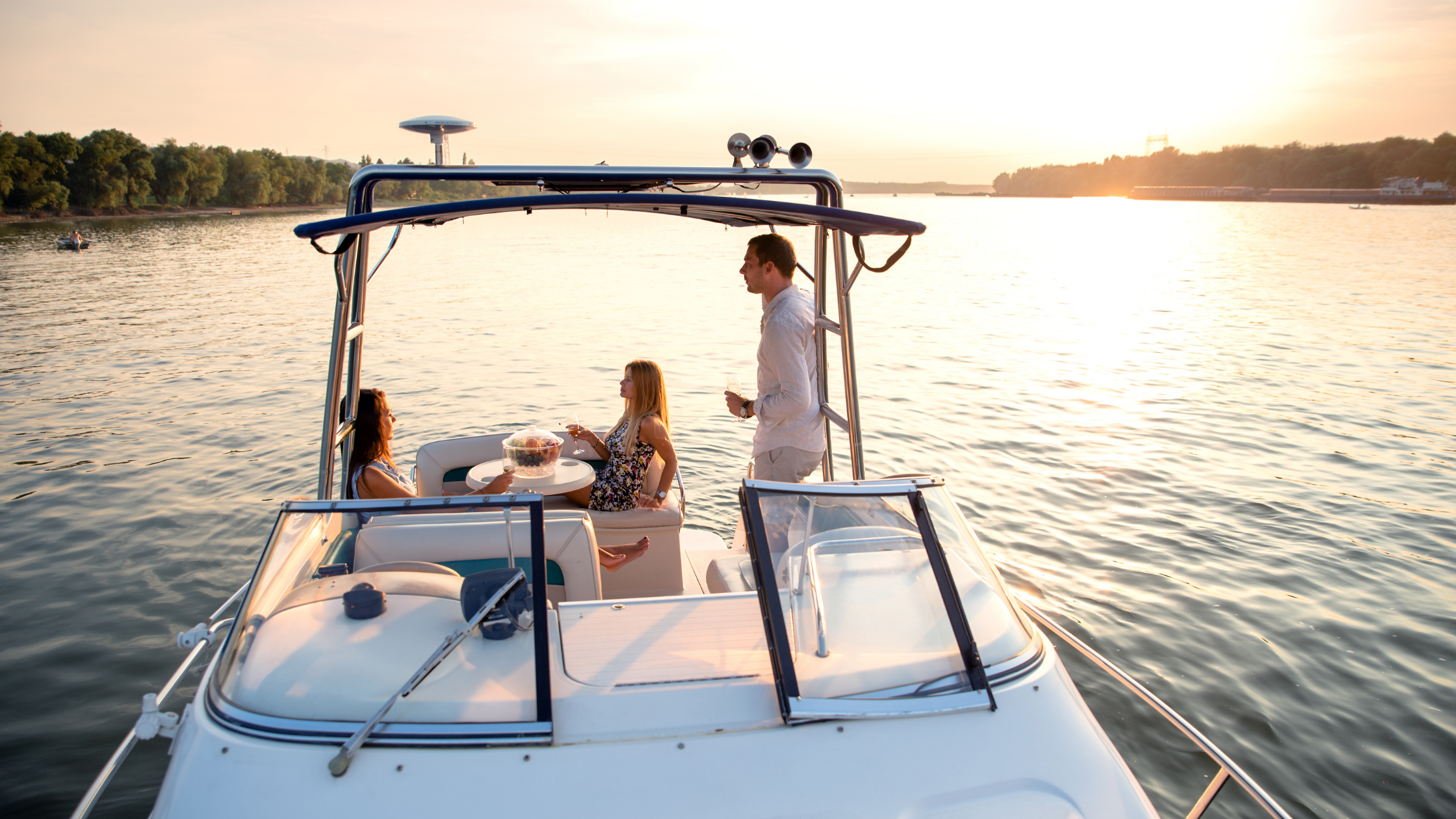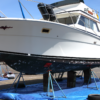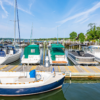
Spring is right around the corner and boaters’ heads are filled with thoughts of getting back out on the water. That makes this the perfect time to be reminded of certain boating customs and unwritten rules – like boating manners. They’ve evolved to keep boaters safe, out of trouble, and courteous. That’s why we’ve put together a list of 8 boating manners every boater should know. Adhere to these simple unwritten rules of the water and everyone is guaranteed smooth sailing.
Unfortunately, boating etiquette is not always taught at boating education, coast guard programs or in boating guides. Yet inexperienced boaters are still expected to behave appropriately in every situation – without ever being told how. Many of these unwritten rules are passed down in boating communities, through friends and family, or, if you’re unlucky, by being corrected for a violation. Ouch!
Now there certainly are more than 8 unwritten rules, and they vary from waterway to waterway. So, if you’re ever in doubt, always opt for courteous and respectful at the dock and at the helm. Consider the other boaters and what you can do to assure everyone’s time on the water is enjoyable.
8 Boating Manners Every Boater Should Know
Be Generous with Knowledge and Help
Boaters are all part of one community. So, if you spot someone struggling to dock or anchor, go ahead and ask if they could use some guidance or a hand. Particularly transient boaters – we’ve all been there! They’re easy to spot since they’re usually the ones squinting to make out the slip numbers as they creep down the fairway. Of course, a dock mate may have a delicate system in place for getting in and out of their slip. That’s why you need to read their response carefully. In other words, don’t be offended if they say “No, thanks.” Of course, all of this goes whether on the dock or on the open water.
Keep the Dock Clear
We share the docks. For just that reason, be mindful not to leave your cooler, shoes, spare anchor, bicycle or the dock cart on the dock in front of your boat. While you’re at it, make sure your power cords are tidy. Enough said.
Educate Guests
Take just a few moments to make sure passengers are familiar with your boat. Show them where they can safely be and move around when underway, and where to find extra personal floatation devices. Everyone on board should be aware of, and comfortable with, the rules of the boat.
Fuel and Go
Pulling up to refuel may seem like a good time to move a few things around below deck, pick up something from the ship store or even grab a quick bite to eat – but, it’s not. When fueling, be courteous and fill up, pay and go. Even if not in line, other boaters may be waiting to fuel up and get on with their day. If you find that supplies, food, or additional services are needed, go ahead and move to a nearby spot.
Watch Your Wake
Although you don’t mean any harm, large wakes in a crowded area can cause havoc. They can potentially swamp smaller boats and toss boaters around in their crafts. Not only is it dangerous, but it’s a sure way to make other boaters irritated. So, slow down when near other boats and give them a wide berth. These guidelines also apply when you’re near a shoreline. Always be mindful of the waves you leave behind, and where you are on the water.
Control Your Inner DJ
We all love our favorite tunes when piloting our boat. However, be mindful that sound amplifies over a body of water. So, keep a respectful volume. Not only is this the polite thing to do, but it’s also in your and your crew’s best interest. For instance, if the music is too loud, you may not hear other vessels nearby or distressed guests onboard. Along that same vein, be aware of others around you. Since sound carries much further on the water, if you’re speaking too loudly, what you thought was a private conversation may have become quite public. Now, if you plan on being loud or playing music, do your best to stay downwind of nearby boats.
Anchoring
It’s always wise not to anchor close to boats you don’t know. And when entering an anchorage, approach very slow so you don’t create a wake or endanger people swimming or snorkeling – they may be hard to spot. Next, look at how the other boats are tied off and follow suit – observe how much line they’ve used and the distance between vessels. For instance, if the other boats are swinging to one anchor, don’t set two anchors. If you do, you’ll move in a different way when the current or wind changes, potentially causing a collision.
And this may seem like common sense, but a new boater may not be aware that you shouldn’t anchor in a channel. It’s like parking in the middle of the road. You’ll know it’s a channel by the red and green buoys marking the sides – oh, and the many boats passing by.
Respect the Environment
Taking care of our oceans, lakes and waterways, and their delicate ecosystems, should be every boater’s number one priority. It’s as simple as keeping track of your trash and dispose of it properly when you get back to the dock. In short, whatever you bring out should go back with you. And, should you find any trash while out boating or fishing, pick it up and dispose of it. Also, be attentive when refueling so you don’t spill any fuel into the water.
Look Out for Anglers
Boats anchored in the middle of the ocean or near mangroves, usually mean there’s fishing going on. In this case you’ll want to keep your distance, and if you can’t keep your distance, slow down as much as possible. The sound of boat engines is known to scare away fish, and make for very unhappy anglers.
Red, Right, Returning
Old salt or novice, every boater should know the rules of the water before they head out. One navigational tip to help you stay in your lane is “red, right, returning”. It’s an expression long used by seafarers as a reminder that the red buoys are kept to the starboard (right) side when proceeding from the open sea into port (upstream). Another thing to remember is that red buoys are always even numbered, and green buoys are odd numbered.
Do Wave
Boaters are a friendly bunch. So, when you pass each other, say hello and offer a gracious wave. It’s not only a nice and respectful thing to do, it also acknowledges that you see them and are plotting your course accordingly. For just these reasons, go ahead a wave away!








